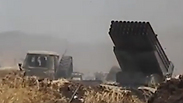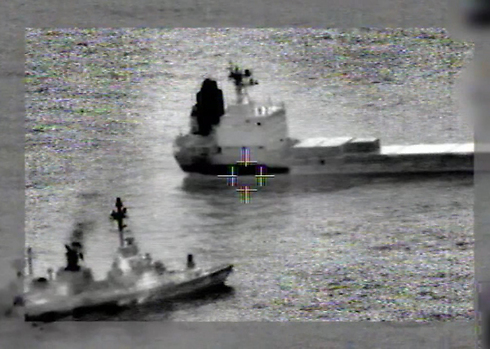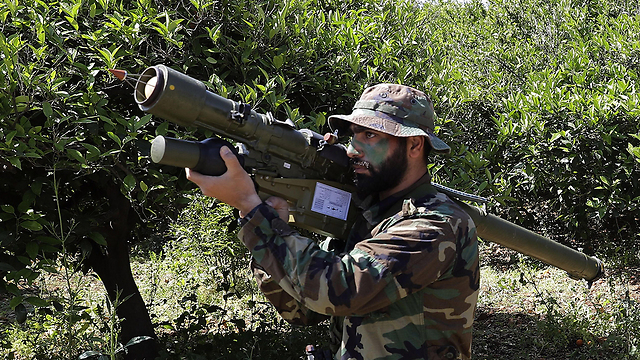
IDF brass confirm Iranian weapons factory in Lebanon
The head of IDF intelligence confirms details of an Iranian weapons facility being constructed in Lebanon amid Israeli efforts to foil the transfer of weapons from the Islamic republic to Hezbollah.
Details that have emerged in recent days indicate the construction of the factory was done at the behest of the Iranians—not Hezbollah—and it is currently unclear to what extent the Shiite terrorist organization is interested in a factory that can cause a confrontation with Israel.
The Iranian Revolutionary Guard Corps (IRGC), which reduced the amount of Tehran's financial aid to Hezbollah over a year ago, realized the method of shipping weapons to Hezbollah was ineffective in the face of Israeli countermeasures targeting shipments.
As such, due to operational and economic considerations, the Iranians decided it would be more efficient to set up a factory in Lebanon itself.
The decision also acts as a sort of insurance policy, with the Iranians banking on the IDF not carrying out attacks in Lebanon—similar to those conducted in Syria—whether against weapon shipments or existing stockpiles.

The revelation poses a serious dilemma to Minister of Defense Avigdor Lieberman over whether or not to attack the factory. He was quoted Sunday afternoon as saying that "Israel does not intend to start a war."
Israel is expected to pursue diplomatic avenues first, beginning against Lebanon itself, which is the sovereign power in the area. From Israel's point of view, Lebanon is responsible both for the construction of the factory.
Despite Hezbollah gaining combat experience in Syria and attempting to increase its firepower, it is unlikely that Secretary-General Hassan Nasrallah is interested in war with Israel. However, the construction of such a factory increases the probability of an escalation, intentional or not.











